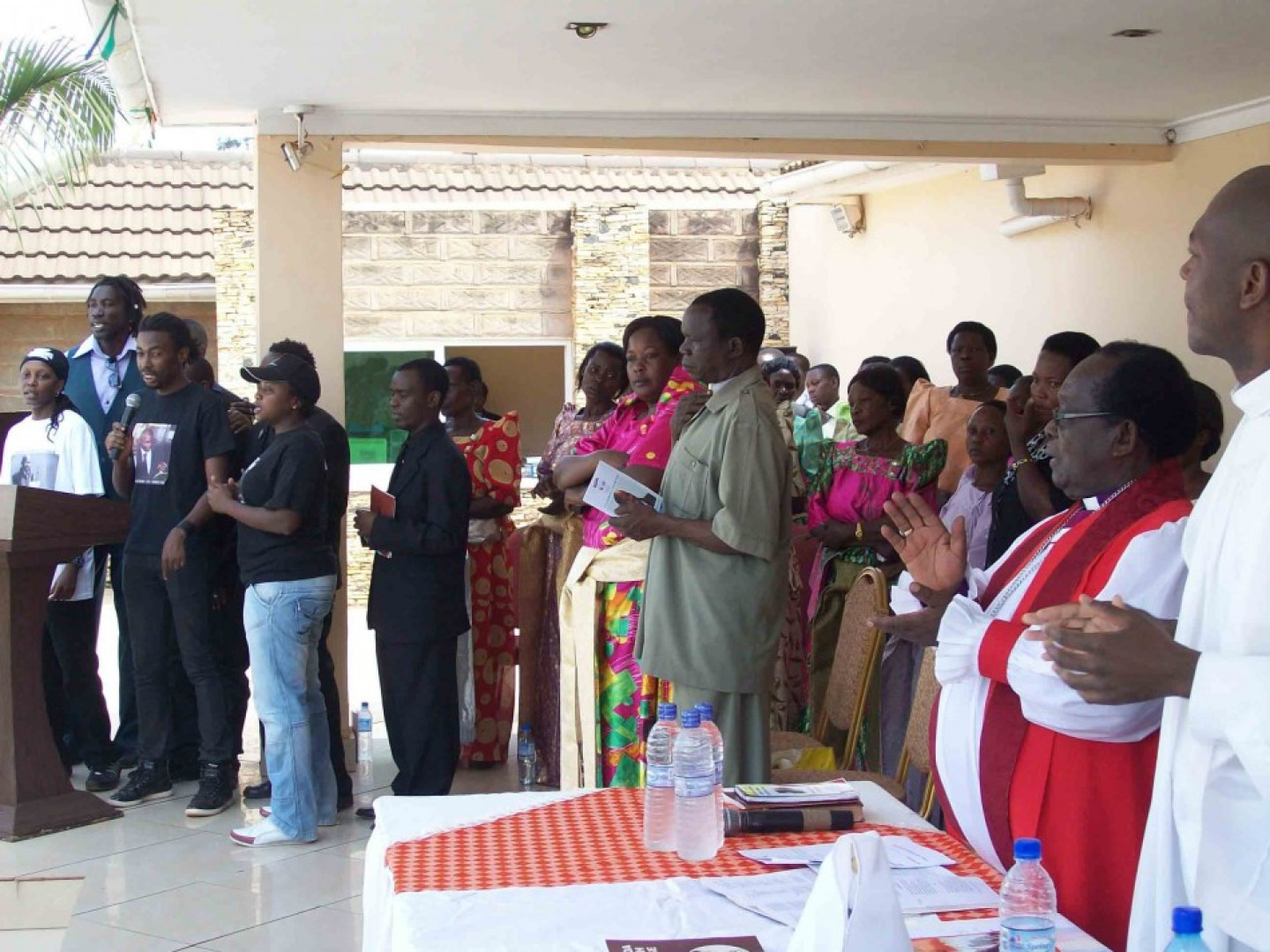Uganda: Murdered Gay Activist David Kato 'Lives on'

One year after the brutal murder of Ugandan gay activist David Kato, Africa is still a long way from recognising lesbian, gay, bisexual and transgender rights.
Kato was the figurehead of Sexual Minorities Uganda (SMUG), an advocacy group that campaigned against the controversial Anti-Homosexuality Bill.
He was murdered after Ugandan weekly Rolling Stone pictured his face and that of another man on its cover under the headline "Hang them!" The subhead read: "We shall recruit 100,000 innocent kids by 2012: Homos" and "Parents now face heart-breaks as homos raid schools."
The paper pledged to expose 100 gay people and printed the photographs, names and in some cases home areas, of people it claimed were gay.
Kato took the publishers to court and won but was murdered in his home few months later, after declaring that he feared for his life.
Authorities sentenced a self-confessed killer to 30 years in prison. But his accounts of the killing - a homosexual sex demand gone wrong - raised doubts among activists and friends of Kato.
"I have reason to believe that the killer was set up to murder Kato for being gay and that he thought if he established a homosexual sex demand, he would be treated leniently and perhaps even as a hero himself," wrote Melanie Nathan, a friend of Kato, on Sdlgn.com website.
Kato's death was condemned by the international and local LGBT community. President Barack Obama and the US secretary of state Hillary Clinton urged the Ugandan government to investigate the death and speak out against homophobia. But the police tried to cover up the events leading to Kato's killing, activists said.
On the anniversary of his death, the LGBT community in Kampala organised a memorial service in honour of him.
"He lives on," Kikonyogo Kivumbi, executive director of civil rights organisation Uhspa-Uganda, told International Business Times UK. "What his death has done to all of us in the gay rights movement is empowerment - more zeal [in refusing] to be marginalised."
Kivumbi claimed that Kato's "sacrifice" helped the gay community to become more visible in Uganda but warned: "Institutionalised homophobia fanned by American evangelists is still a challenge."
"David did not only talk about gay rights," Kivumbi continued. "He spoke against child sacrifice. He was a caring and incredible human rights defender. We emulate him."
About 450,000 people are believed to be gay in Uganda, according to Kivumbi. It has been calculated that about 38 countries in Africa still criminalise homosexuality.
The government recently withdrew the Anti-Homosexuality Bill which, if enacted, would have forced doctors, teachers, lawyers and other professionals to report someone who was homosexual within 24 hours or face arrest.
"It is an infamous horror script for a horror movie," Kivumbi said of the bill. "It is a shame that the parliament of a sovereign nation should consider discussing such a bill."
John Bosco Nyombi, a gay Ugandan man who fled to Britain in 2001 and finally won asylum after an eight-year campaign, believes that the Ugandan government's attitude towards gay people is shamefully common in Africa.
"Most Ugandan people don't like homosexuals," he told the Frontline Club in London. "Politicians don't want to lose their votes, and even if they are not interested in the issue, they campaign against our rights to gain popularity."
Nyombi also criticised the primitive view which sees homosexuals as a threat to children. "Catholic priests don't get married but their existence is not questioned," he said. "Gay people don't recruit children, it's a childish discussion. I am gay, but certainly not because my parents told me not to be straight."
As Ugandan activists commemorate Kato's death, a commitment to fight for equal rights in Africa has lost none of its force.
© Copyright IBTimes 2025. All rights reserved.






















